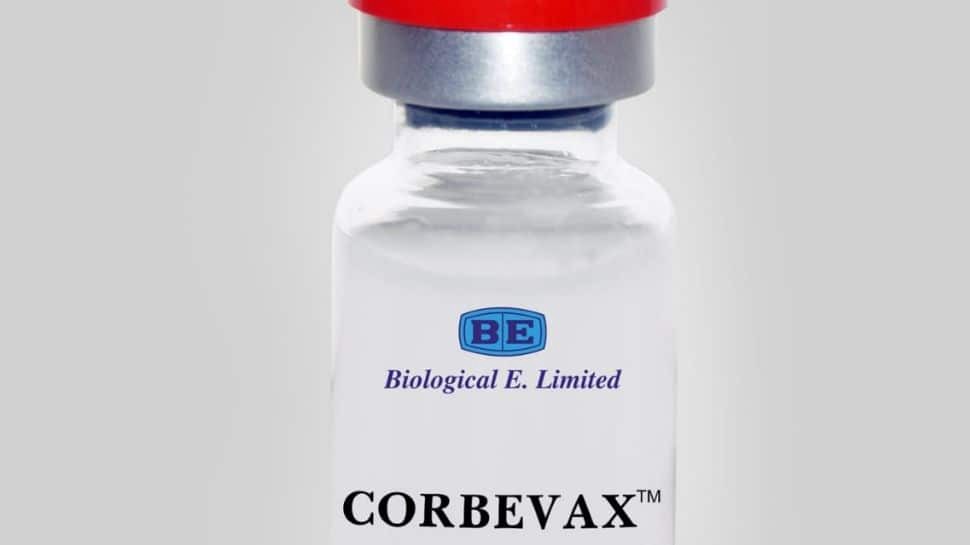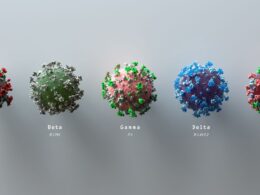Texas Children’s Hospital Grants Non-Exclusive License To Biological E
Health Policy Watch
Elaine Ruth Fletcher
28/12/2021
Vaccine equity advocates see huge potential in India’s decision to grant an emergency use license to CORBEVAX ™, an open-license vaccine dubbed “The World’s COVID-19 Vaccine” by its developers at Texas Children’s Hospital and Baylor College of Medicine.
The protein sub-unit vaccine, engineered at Baylor’s Center for Vaccine Development (CVD), received the Emergency Use Authorization (EUA) approval on Tuesday from the Drugs Controller General of India (DCGI).
Plans are to first launch the vaccine in India and “other underserved countries to follow.”
The vaccine production in India has been licensed to the Hyderabad-based vaccine and pharmaceutical company Biological E. Limited (BE), said the developers in a press release Tuesday .
“We technology transferred our vaccine and helped in its co-development with BioE with NO PATENT and no strings attached.
As a result it should be the least expensive COVID vaccine available yet,” said the vaccine’s lead co-developer, Dr. Peter Hotez, in a tweet just after the news was announced.
“BioE now has 150 million doses ready now, and will be making 100 million per month,” Hotez added.
“In so doing our Texas Children’s has just matched or doubled the US Government current commitment to global vaccine equity.”
Hotez, dean of Baylor’s National School of Tropical Medicine at Baylor and co-director of the Center for Vaccine Development, is a well-known US vaccine expert who has become a popular US news commentator during the pandemic.
The R&D team was co-led by Dr. Maria Elena Bottazzi, Associate Dean of the National School of Tropical Medicine at Baylor and co-director of the Center for Vaccine Development.
Not patented — vaccine aims to serve underserved regions
More significantly, as the vaccine is not patented, the developers have declared that they hope to replicate more non-exclusive licenses for the vaccine know-how and production process in other under-served regions of the world.
The vaccine uses traditional recombinant protein-based technology — wielding a carefully selected protein from the SARS-CoV2 pathogen to provoke immunity — in a vaccine production process that is already familiar to drug manufacturers the world over.
That, says its developers, should allow for rapid scale-up in other low- and middle-income countries.
“This announcement is an important first step in vaccinating the world and halting the pandemic. Our vaccine technology offers a path to address an unfolding humanitarian crisis, namely the vulnerability the low- and middle-income countries face against the delta variant,” said in the press release.
“Widespread and global vaccination with our Texas Children’s-Baylor-BE vaccine would also forestall the emergence of new variants. We have previously missed that opportunity for the alpha and delta variant. Now is our chance to prevent a new global wave from what might follow.”
“Protein-based vaccines have been widely used to prevent many other diseases, have proven safety records, and use economies of scale to achieve low-cost scalability across the world,” said .
“Our decade-long studies advancing coronavirus vaccine prototypes has led to the creation of this vaccine, which will fill the access gap created by the more expensive, newer vaccine technologies and that today are still not able to be quickly scaled for global production.
Superior response to COVISHIELD & fewer adverse effects
The press statement said that CORBEVAX™, after completing two Phase III clinical trials involving more than 3000 subjects, was found to be safe, well tolerated and immunogenic.
It also said that CORBEVAX™ demonstrated “superior” immune response in comparison to the Astra-Zeneca COVISHIELD™ vaccine, produced by the Serum Institute of India — with fewer adverse effects, saying:
“ CORBEVAX™ demonstrated superior immune response in comparison with COVISHIELD™ vaccine when assessed for Neutralizing Antibody (nAb) Geometric Mean Titers (GMT) against the Ancestral-Wuhan strain and the globally dominant Delta variant. CORBEVAX™ vaccination also generated significant Th1 skewed cellular immune response.
“While none of the subjects who took CORBEVAX™ or COVISHIELD™ had serious adverse events, CORBEVAX™ had 50 percent fewer adverse events than COVISHIELD™,” the vaccine’s developers also stated.
In other efficacy members, the developers said:
- CORBEVAX™ nAb GMT against Ancestral-Wuhan strain is indicative of vaccine effectiveness of >90% for prevention of symptomatic infections based on the Correlates of Protection assessment performed during Moderna and Astra-Zeneca vaccine Phase III studies.
- CORBEVAX™ nAb GMT against the Delta strain indicates a vaccine effectiveness of >80 percent for the prevention of symptomatic infections based on published studies.
“Over the years, we have worked to make quality vaccines and pharmaceutical products accessible to families around the world. With this as our backdrop, we resolved to develop an affordable and effective COVID-19 vaccine. It has now become a reality,” said Mahima Datla, Managing Director, Biological E. Limited, which is also receiving support from the Oslo-based Coalition for Epidemic Preparedness (CEPI), and Bill and Melinda Gates Foundation.
“We deeply appreciate Texas Children’s Hospital Center for Vaccine Development, Baylor, CEPI, the Bill and Melinda Gates Foundation, and the government of India for their continuous support and cooperation during this journey. The combined efforts & unceasing support demonstrate that we can collectively overcome any challenge”.
Given its reliance on more traditional vaccine technology, the vaccine may be potentially more acceptable to some groups than cutting edge mRNA vaccines, observers also said.
Similar technology to Hepatitis B Vaccine and other common vaccines
“We’re really excited about this,” said Jamie Love, of Knowledge Ecology International, noting that the developers at Baylor are licensing the vaccine know-how and access to cell lines, technology transfer is a key focus of their team. “They have worked in manufacturers in Indonesia, Bangladesh and Brazil, and are talking with others too.”
CORBEVAX ™ is the third protein subunit vaccine to enter the market. Others include a vaccine developed by Cuban researchers and Covovax, the India-produced version of the vaccine developed by the US firm Novavax, which received WHO emergency use approval on 17 December, followed later by a European Medicines Agency authorization for the European version of the vaccine.
“The vaccines are safe, and may appeal to those who don’t want the mRNA vaccines, who may accept a more traditional vaccine platform,” Love said, adding, “also, they may play a role as a booster, which is where the market is headed,” adding, “I think the protein subunit vaccines from places like Baylor — and Cuba — are really not talked about enough.
“Messenger RNA is a really good initial thing, but I don’t know how durable they are or how they will look going forward. The mRNA vaccines [Pfizer and Modern] are keeping people out of hospitals and from dying, but they are not stopping Omicron.
“And if you look at other vaccines, the Chinese or Russian vaccines, they still have played a pretty good role in keeping people out of the hospital and dying. You now have three protein subunit vaccines out there; they look like they are important. One thing we will want to look at is just how durable they are in terms of protection, in comparison to the messenger RNA, and see how they perform.”
But either way the vaccine dice finally rolls: “having multiple vaccine candidates is always positive.”
Image Credits: Texas Children’s University , Texas Children’s Hospital.
Originally published at https://healthpolicy-watch.news.
Names cited
vaccine’s lead co-developer, Dr. Peter Hotez
The R&D team was co-led by Dr. Maria Elena Bottazzi, Associate Dean of the National School of Tropical Medicine at Baylor and co-director of the Center for Vaccine Development
“We’re really excited about this,” said Jamie Love, of Knowledge Ecology International,
Baylor College of Medicine.












